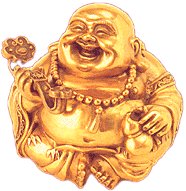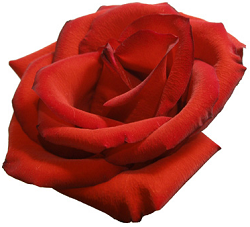|
|



|
|
HOME
Meditation J Krishnamurti Tao Te Ching 1 - 5 6 - 10 11 - 15 16 - 20 21 - 25 26 - 30 31 - 35 36 - 40 41 - 45 46 - 50 51 - 55 56 - 60 61 - 65 66 - 70 71 - 75 76 - 81 Dhammapada Buddhist Classics
|
Random Image
Tao Te Ching
Book Two
76-81
LXXVI
A man is supple and weak when living, but hard and stiff when dead. Grass and trees are pliant and fragile when living, but dried and shrivelled when dead. Thus the hard and the strong are the comrades of death; the supple and the weak are the comrades of life.
Therefore a weapon that is strong will not vanquish;
A tree that is strong will suffer the axe.
The strong and big takes the lower position,
The supple and weak takes the higher position.
LXXVII
Is not the way of heaven like the stretching of a bow?
The high it presses down,
The low it lifts up;
The excessive it takes from,
The deficient it gives to.
It is the way of heaven to take from what has in excess in order to make good what is deficient. The way of man is otherwise. It takes from those who are in want in order to offer this to those who already have more than enough. Who is there that can take what he himself has in excess and offer this to the empire? Only he who has the way.
Therefore the sage benefits them yet exacts no gratitude,
Accomplishes his task yet lays claim to no merit.
Is this not because he does not wish to be considered a better man than others?
LXXVIII
In the world there is nothing more submissive and weak than water. Yet for attacking that which is hard and strong nothing can surpass it. This is because there is nothing that can take its place.
That the weak overcomes the strong,
And the submissive overcomes the hard,
Everyone in the world knows yet no one can put this knowledge into practice.
Therefore the sage says,
One who takes on himself the humiliation of the state
Is called a ruler worthy of offering sacrifices to the gods of earth and millet;
One who takes on himself the calamity of the state
Is called a king worthy of dominion over the entire empire.
Straightforward words
Seem paradoxical.
LXXIX
When peace is made between great enemies,
Some enmity is bound to remain undispelled.
How can this be considered perfect?
Therefore the sage takes the left-hand tally, but exacts no payment from the people.
The man of virtue takes charge of the tally;
The man of no virtue takes charge of exaction.
It is the way of heaven to show no favoritism.
It is for ever on the side of the good man.
LXXX
Reduce the size and population of the state. Ensure that even though the people have tools of war for a troop or a battalion they will not use them; and also that they will be reluctant to move to distant places because they look on death as no light matter.
Even when they have ships and carts, they will have no use for them; and even when they have armor and weapons, they will have no occasion to make a show of them.
Bring it about that the people will return to the use of the knotted rope,
Will find relish in their food
And beauty in their clothes,
Will be content in their abode
And happy in the way they live.
Though adjoining states are within sight of one another, and the sound of dogs barking and cocks crowing in one state can be heard in another, yet the people of one state will grow old and die without having had any dealings with those of another.
LXXXI
Truthful words are not beautiful; beautiful words are not truthful. Good words are not persuasive; persuasive words are not good. He who knows has no wide learning; he who has wide learning does not know.
The sage does not hoard.
Having bestowed all he has on others, he has yet more;
Having given all he has to others, he is richer still.
The way of heaven benefits and does not harm; the way of the sage is bountiful and does not contend.
-END-
...Excerpt from the Tao Te Ching



Contact • Feedback • Typo • Privacy • Home